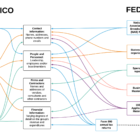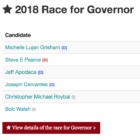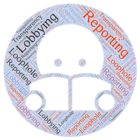Money in Politics
Lawmakers want more timely reporting of campaign cash
|
In the final week of the 2022 general election, almost $350 thousand dollars went to candidates that wasn’t reported until this month when the election was long over.
That’s because smaller cash contributions in the final days of a New Mexico general election aren’t reported under New Mexico law until two months later when “no one cares because we’re off to other things,” said Rep. Matthew McQueen, D-Galisteo, who with Sen. Bill Tallman, D-Albuquerque, is sponsoring a bill that would speed up the reporting cycle.
Under their bill, the campaign reporting period would end on election day, for both the primary and general elections, and a report would be due a week later.
“Lawmakers should file their reports when the public is paying attention,” McQueen told members of the House Government, Elections and Indian Affairs Committee Friday morning.
The legislation cleared the committee on a 7 to 2 vote. It now heads to the House Judiciary Committee.House bill 103 makes several other changes, as well, that would lead to more timely disclosure of money collected by certain public officials. It speeds up the timeline for reporting money contributed during legislative sessions.
Currently, certain elected officials are prohibited from soliciting donations from Jan. 1 through the end of the legislative session when they’re making or changing laws.









